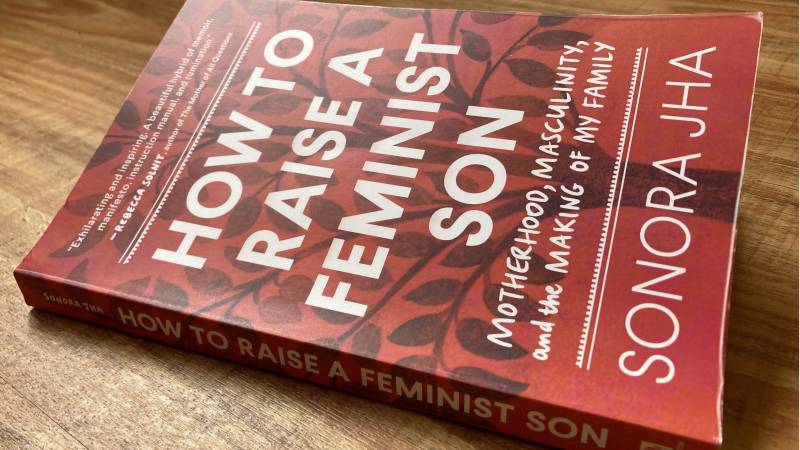The project of raising feminist boys is also an act of responding to toxic masculinity. For Jha, the effort to raise a feminist son has included telling her son her own Me Too stories at an age-appropriate time. “It’s only hard until it gets easier,” she said of sharing her experiences. “It’s going to be hard to talk about these things with our kids, and especially with our boys. But if we know that everyone else is doing it …f then it becomes easier,” she said. “These things are only hard because they’re forbidden.”
Jha has been writing her memoir in “fits and starts” for a while now. But she wanted to combine her feminist scholarship, as well as her lived experience as a mother. Some of the chapters started as political essays in response to controversies surrounding Aziz Ansari and Serena Williams, writing about different intersections of masculinity, motherhood and feminism. “There’s such a hunger in society to talk about boys and to talk about how we raise boys,” she said. “So much of my identity as a mother and as a scholar and writer is tied in with these questions.” Once she knew that was the heart of the book, it took about a year and a half to write. The final product is, as Rebecca Solnit describes it, “a beautiful hybrid of memoir, manifesto, instruction manual, and rumination.”
While the family details are some of the most heartbreaking and powerful storytelling nuggets, Jha admits that memoir is hard, and she has faced some occasional sleepless nights. Even though she has changed most people’s names in the book, “they know who they are.” But she sees this aspect of memoir as important — being able to recognize your own story in someone else’s. The book will also be published in India. That’s because for her, it’s even more important for South Asian women to tell their stories, both in the diaspora and in South Asia. “We need more personal stories, and we need more memoirs — because we really need to either be whistleblowers or say, ‘Hey, enough of the silence and the shame.’ ”

